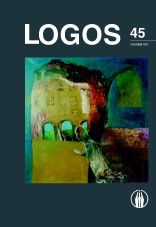AKVINIETIS IR RACHELĖS RAUDA
Aquinas and the Cry of Rachel
Author(s): John F. X. KnasasSubject(s): Philosophy
Published by: Visuomeninė organizacija »LOGOS«
Keywords: Thomas Aquinas; Jacques Maritain; evil; original sin; person
Summary/Abstract: I examine Jacques Maritain's critique of a Thomistic explanation of suffering from his 1942 Marquette Aquinas Lecture, St. Thomas and the Problem of Evil. At Summa Theologiae I, 48, 2c Aquinas explains that evil results from corruptible things that are in turn necessary for "the perfection of the universe." Using the Biblical personage of Rachel, who has lost her children to the soldiers of King Herod, Maritain poignantly observes that Aquinas' reason would never satisfy a mother suffering the loss of her child. According to Maritain, one must balance 48, 2, with Summa Contra Gentiles III, 112, in which Aquinas describes the rational creature as a person. This description means that the rational creature is more like a whole than a part thereof. Hence, Maritain concludes that human suffering is better understood as the unfortunate result of the rational creature's free refusal of divine love, i.e., as a result of original sin. I critique Maritain's answer as essentially theological. Furthermore, Aquinas cannot console Rachel not because philosophy has no explanation for evil but because it has too many possible explanations.
Journal: LOGOS - A Journal of Religion, Philosophy, Comparative Cultural Studies and Art
- Issue Year: 2006
- Issue No: 45
- Page Range: 38-42
- Page Count: 5
- Language: Lithuanian

